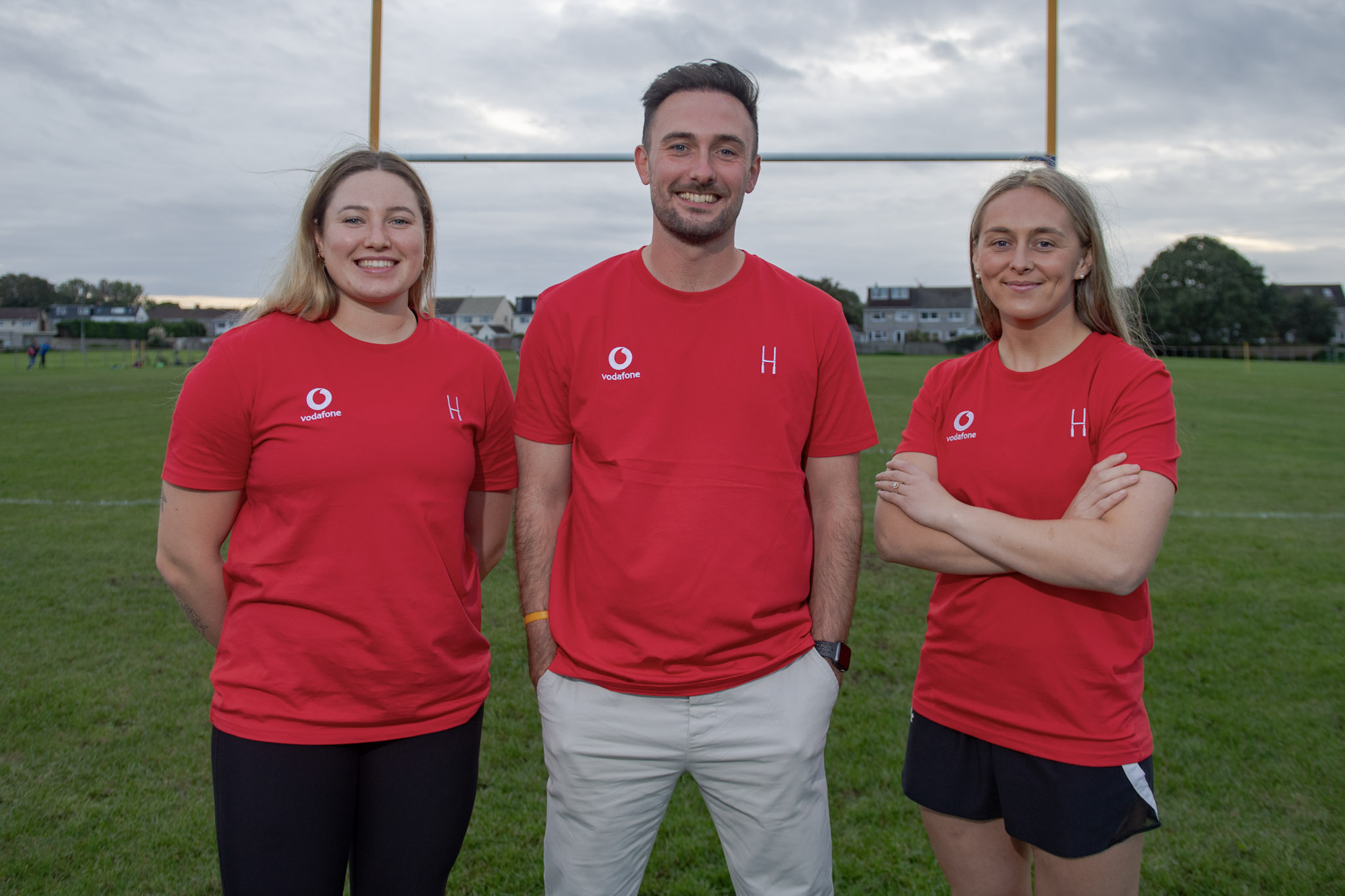
On International Women’s Day, Nicki Lyons, Vodafone’s UK Chief Corporate Affairs & Sustainability Officer, reflects on the challenges still facing many women in the workplace.
International Women’s Day is a wonderful opportunity to celebrate all the pioneering women who’ve gone before, fighting for equality, and paving a better way for us today. And it’s also an opportunity to celebrate all the inspirational women doing amazing things in the world right now.
This year, the UN’s chosen theme – DigitALL: Innovation and technology for gender equality – is particularly apt for a technology communications company like Vodafone. Our products and services are helping to empower women all over the world.
How Vodafone tech is empowering women all over the world
Technology has been a great enabler for women everywhere, giving us the flexibility to manage our work and home lives more effectively, and giving us access to information that empowers us and helps level the playing field. I’m sure there are many women who, like me, have sent frantic work emails while standing in the playground at pick-up time, or who’ve taken video calls while praying that a sick child doesn’t wake up.
But we need more women around the world to gain access to these essential digital services, given that men are 21% more likely to be online than women, according to the World Bank. In low-income countries, this figure rises to 52%.
So I long for the day when we don’t have to mark International Women’s Day because gender inequality has ceased to be an issue. I long for equity, not just equality, where we can find the best people for the job regardless of gender and pay them equally. I long for a world in which companies can accommodate the differences of all individuals and support their personal circumstances regardless, so that we can make the most of all the talent available to us.
Sadly, the statistics show that we still have a long way to go.
Cultural biases
According to TechNation research, just 25.5% of the tech workforce are women, compared to 49.8% of the wider workforce. And half of the women who take up a role in tech end up leaving by the age of 35, citing non-inclusive culture as one of the main reasons, says a WDI Consulting report. Other surveys regularly find that women feel they have to work harder than their male colleagues to prove their worth, and that gender bias is still a barrier to promotion.
Vodafone: One of the Times Top 50 Employers for Women 2022
The truth is that there are still deep-seated cultural biases within our society. Young girls are subtly conditioned to feel that Science, Technology, Engineering and Maths (STEM) subjects are not for them; that a career in technology is not an option. There are still societal assumptions about what a female’s role is both at work and at home; unconscious biases that warp the decisions we make.
We have to challenge these assumptions and work strenuously to encourage girls and young women to explore careers they might not have thought about before. We have to fight for a world in which equality of opportunity – and freedom of choice – is a given.
Vodafone’s response
So what is Vodafone doing about it?
Well, I’m really pleased to say that our 50:50 recruitment shortlist policy for graduates is one positive way to address the gender imbalance. And our latest youth apprenticeship programme, which covers roles in software engineering and data analytics, has attracted 56% female applicants.
Media error: Format(s) not supported or source(s) not found
Download File: https://www.vodafone.co.uk/newscentre/app/uploads/2022/03/0069-IWD_Nicki-March_2022-LONG_VERSION-Online_V58-3-22OPTIMISED.mp4?_=1We also aim to have 40% of women in management and leadership roles by 2030 and have hit the 30% figure ahead of schedule.
Gender pay gap
The gender pay gap – the difference between the average pay for all men and all women in a business – is an issue for most companies, because there still tend to be more men in more senior, better-paid roles than women.
One of the reasons for this is that people who leave work to have a family rarely catch up when they return to work. They miss out on pay rises, bonus conversations and promotion opportunities. And women in this position – and it is mostly women – often lack confidence because they wrongly feel that their skills are no longer relevant, so they undersell themselves.
This is why I’m a passionate champion of our ReConnect programme, which supports talented people returning to the workplace after a career break with training, flexible working and a phased return to ease the transition.
Programmes like this, on top of our 50:50 recruitment shortlists mentioned above, have helped Vodafone UK reduce the mean gender pay gap from 12% in 2020 to 10.4% in 2022.
Parental leave
Another of our initiatives that I’m really proud of is our market-leading parental leave policy, which gives the non-birthing parent 16 weeks off work on full pay. Upon their return, they work a four-day week for six months.
Meet the Parkinsons | Paternity Leave Policy
This gives men and non-birthing parents the ability to play a far more active role in the care of a newborn child, which is really liberating for women, because it enables them to go back to work earlier if they wish. And men can take on many more of the traditionally female tasks, such as networking and arranging play dates, doctor’s appointments, childminders and so on.
Some men I’ve spoken to who’ve benefited from our parental leave policy say it has made them more empathetic with the women they work with and manage as a result. There’s no better lesson than to walk in someone else’s shoes for a while.
But of course, in society at large, it’s still women who do the lion’s share of domestic chores and take on “caring” responsibilities, such as looking after elderly parents.
Conclusion
So there is lots to celebrate on International Women’s Day, but it is also a day for reflection and an opportunity to recommit ourselves to tackling the causes of persistent gender imbalances with renewed vigour.
Stay up-to-date with the very latest news from Vodafone by following us on Twitter and signing up for News Centre website notifications.









